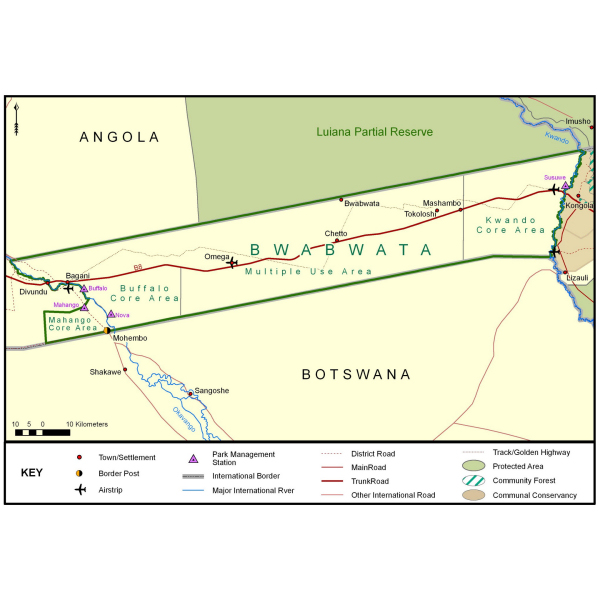This research project of the Jutta Vogel Foundation will once again benefit the cultural heritage of a San group living in the Bwabwata National Park in Namibia’s West Caprivi.
During the Namibian struggle for independence, the Khwe were resettled by the South African armed forces from their ancestral home areas to local military camps because their settlement area became a restricted military area. Many Khwe were recruited as soldiers into the South African army, which then left the country in the course of Namibia’s independence in 1990. In 2000, the conservation status of the Caprivi Game Park was upgraded to National Park. In the course of the resettlement, the Khwe lost access to their hunting and gathering grounds. The former spatial organization, according to which the heads of family groups decided who had access to the natural resources of their area, became irrelevant. These developments also had an impact on family organization. Until then, families had been structured “bilaterally”, i.e. each child belonged to both the mother’s and the father’s group and thus had the right to bear the names of both families and to use the resources in the hunting and gathering areas of both families of origin. Due to the influence of the patriarchal order that prevailed in the South African army, many Khwe only assigned themselves to their father’s group, the importance of the family name for subsistence was lost and many names were forgotten by the younger generations.
Today, the Khwe are aware of how much knowledge about their own culture has already been lost. They have therefore begun to collect information on the settlement history of individual family groups and write it down in their language in order to pass on the knowledge gained to younger generations. This is the starting point for the work of Dr. Gertrud Boden in close cooperation with the Kyaramacan Association recently founded by the inhabitants of the Bwabwata National Park, the result of which is to be a textbook documenting the origin and meaning of 35 Khwe family names using original language texts with interlinear and English translations. Further information as well as pictures and drawings complement the texts.
The book is to be used both in native-language school lessons and in the Traditional Environmental Knowledge Outreach Academy (TEKOA), a facility that is currently being set up where older Khwe will pass on their traditional knowledge about the environment to the younger generation and visitors to the national park.
Here you can view some pages of the final version of the book: PDF-Download


